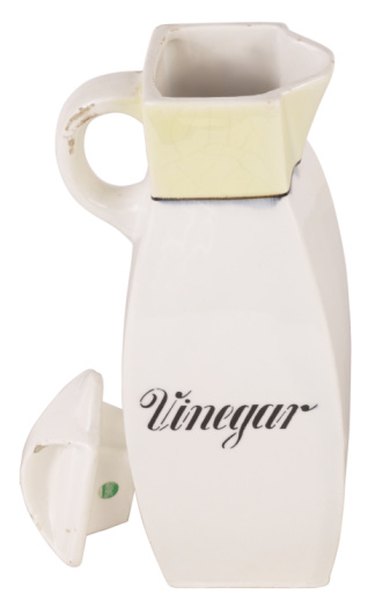
Water gives life to plants, and you can't find a substitute for it. If you were to give a plant vinegar instead of water for any length of time, the plant would die. If quantities of the vinegar had entered the soil, it would change the pH balance of the soil to alkaline and will take some time before the soil can be used to grow plants again. However, plants do have some good uses for vinegar, and if you are careful and use it correctly it can be invaluable in your garden, depending on how much you use.
What is Vinegar?
Video of the Day
Vinegar is "a sour liquid obtained by fermentation of dilute alcoholic liquids and used as a condiment or preservative," according to Merriam-Webster Online Dictionary. Vinegar is an acetic acid produced from fermentation of ethanol that comes from wine, cider, beer or fruit juices. Acetic acid bacteria are added to the substance to cause oxidization, which results in acetic acid. It is sold in concentrations of 5 percent acetic acid for household uses and 15 percent to 20 percent for industrial use.
Video of the Day
Uses of Vinegar in the Garden
Vinegar has many constructive uses in the garden. It works as an organic herbicide, eliminating grasses and weeds from the crevices and cracks of driveways. It gives a boost to plants that love acid, like azaleas, gardenias and hydrangeas. It will stop ants from congregating anywhere you don't want them, and repels dogs from walking over your plants. It will prevent cats from using your children's sandbox for a litter tray, increase the acidity in your soil and neutralize the effects of garden lime.
Quantities to Use
To use vinegar as an herbicide, you will need a higher concentration than regular household strength vinegar. By distilling the vinegar you can obtain a 15 percent concentration, and by freeze evaporation you can get 30 percent strength. Both of these industrial strength vinegars are available from stores. Pour full-strength vinegar onto the weeds you want to kill. To improve the acidity of your soil, mix a cup of distilled white vinegar to 1 gallon of tap water and use it to water those plants that need it.
Recovery from Vinegar
The majority of plants will not grow in soil with a high acidic content. If you have used vinegar on a plant regularly, it might have increased the acidity of the soil, and will need to recover before you can plant anything else. Raise the pH of the soil by mixing in hydrated lime or limestone and wood ash, especially in the top six inches of soil. Modifying the pH of the soil can take time and may require several treatments.